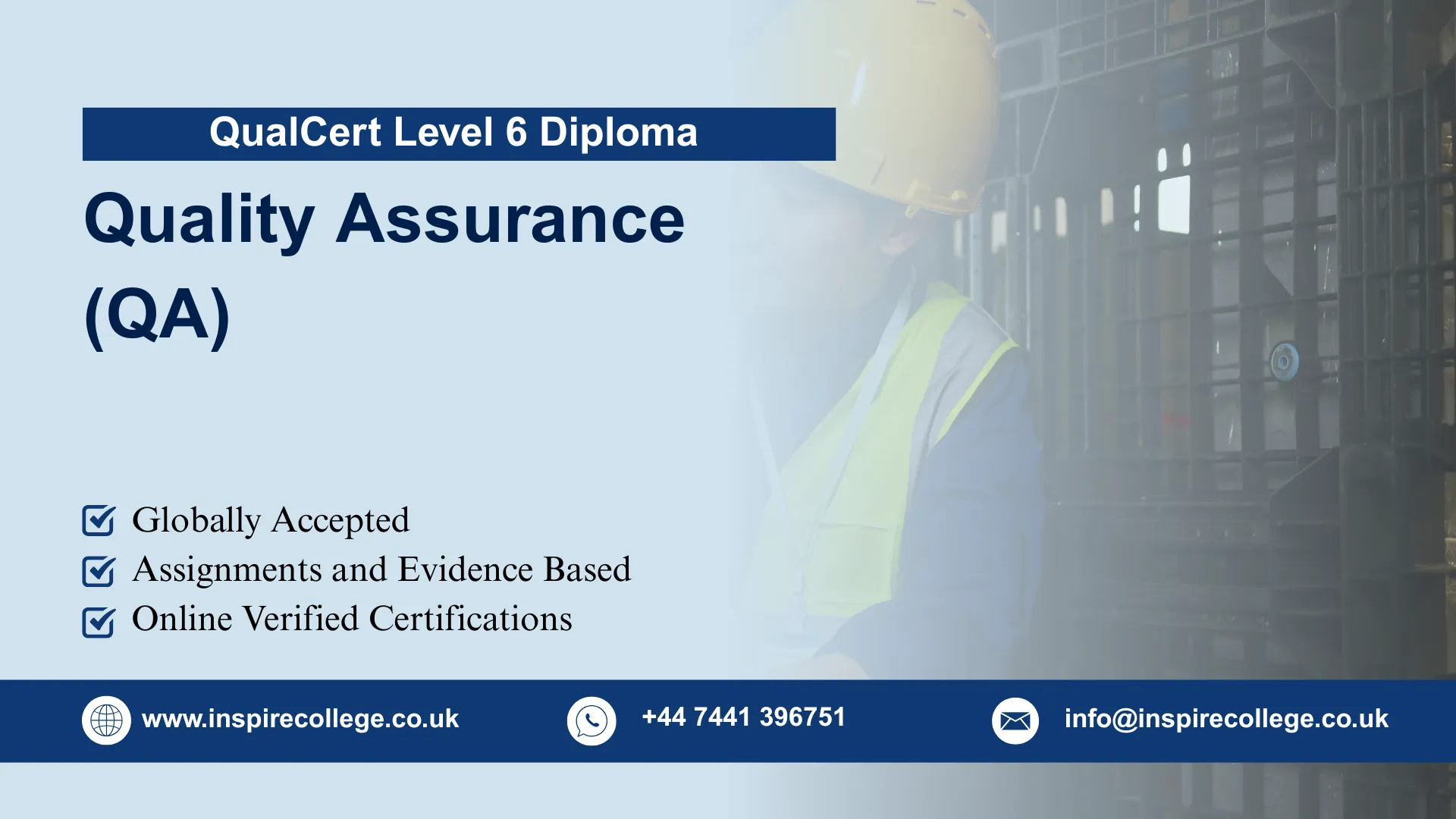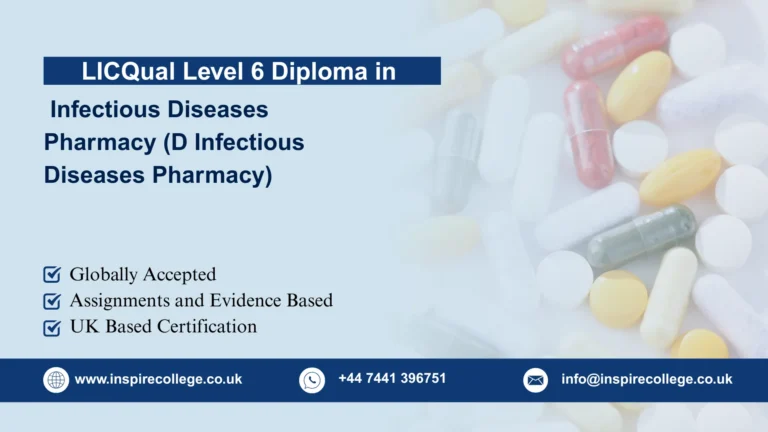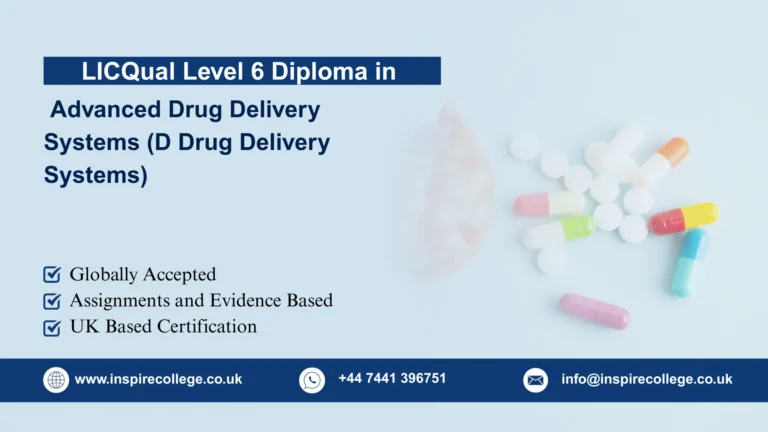
QualCert Level 6 Diploma in Quality Assurance (QA)
In today’s fast-paced and highly competitive business environment, the ability to maintain and enhance quality standards is essential for organizational growth and sustainability. Quality assurance (QA) ensures that products, services, and processes consistently meet regulatory requirements, customer expectations, and international benchmarks. The QualCert Level 6 Diploma in Quality Assurance (QA) has been developed to provide professionals with the knowledge, skills, and practical expertise needed to excel in mid-to-senior-level quality management roles.
QualCert Level 6 Diploma in Quality Assurance (QA) explores key aspects of modern quality management, including auditing practices, compliance frameworks, risk management, and process improvement strategies. Learners will gain a solid understanding of how to design, implement, and monitor effective quality systems that drive operational efficiency, customer satisfaction, and continuous improvement. The course also emphasizes the practical application of global quality standards such as ISO frameworks, Lean, and Six Sigma methodologies.
Through a combination of theoretical knowledge and real-world applications, participants will develop strong analytical, problem-solving, and decision-making capabilities. QualCert Level 6 Diploma in Quality Assurance (QA) equips learners to address complex quality challenges, lead quality assurance initiatives, and contribute to long-term organizational success.
The QualCert Level 6 Diploma in Quality Assurance (QA) is suitable for professionals in quality assurance, quality control, compliance, operations, and project management who aspire to enhance their expertise and take on greater leadership responsibilities. By completing this diploma, learners will be well-positioned to advance their careers and make meaningful contributions to organizational excellence.
Enrollment into the QualCert Level 6 Diploma in Quality Assurance (QA) is based on a set of clearly defined prerequisites that ensure candidates are fully prepared to engage with the advanced content of the program. These requirements are carefully structured to confirm that learners have the academic background, maturity, and foundational knowledge necessary to benefit from this qualification and successfully progress into higher-level quality management roles.
Age Requirement
Applicants must be at least 18 years old at the time of admission. This minimum age reflects the need for a degree of personal maturity and responsibility, as the course involves advanced concepts, professional applications, and decision-making skills relevant to organizational quality assurance functions.
Educational Background
Candidates are expected to hold a Level 5 qualification in a related discipline or an equivalent diploma or degree from a recognized institution. Suitable fields include business management, engineering, operations, quality management, or any discipline where quality assurance principles are applied. This ensures that learners enter the program with a solid foundation in academic study and subject knowledge.
Professional Experience
While previous work experience in quality assurance, quality control, compliance, or a related sector is highly recommended, it is not an absolute requirement. Applicants with industry experience will find it easier to contextualize the theoretical aspects of the program within practical workplace scenarios. However, motivated learners without direct experience may also be admitted if they demonstrate strong academic readiness and career aspirations in quality management.
English Language Proficiency
As the medium of instruction is English, applicants must demonstrate adequate language proficiency. This can be evidenced through prior education conducted in English or through recognized language qualifications such as IELTS, TOEFL, or equivalent. Strong communication skills are essential to ensure learners can actively participate in discussions, complete written assessments, and apply course knowledge effectively in professional contexts.
The QualCert Level 6 Diploma in Quality Assurance (QA) is specifically designed for individuals who already possess a solid grounding in quality management and aspire to advance their expertise. Meeting these entry requirements ensures that learners are well-prepared to take their skills to the next level, equipping them for greater responsibility and leadership in the field of quality assurance.
Mandatory Units
The QualCert Level 6 Diploma in Quality Assurance (QA) certification is designed to provide a structured and comprehensive framework for developing expertise in quality assurance. Below is the qualification structure, including the Total Qualification Time (TQT) 1200, Guided Learning Hours (GLH) 600, and 120 Credits associated with the program.
Quality Management in Organizations
Continuous Improvement Techniques
Quality Audit Practices
Risk Management in QA
Supplier Quality Management
Regulatory and Legal Framework for QA
1. Quality Management in Organizations
This unit provides an in-depth understanding of the principles and frameworks that underpin quality management systems. Learners will explore the vital role that quality management plays in ensuring organizational success, sustainability, and customer satisfaction. Emphasis is placed on the implementation of quality control and assurance strategies to enhance efficiency and productivity. Participants will also evaluate various quality management models such as Total Quality Management (TQM) and ISO frameworks, analyzing their applications across different industries. Additionally, learners will develop leadership skills that foster a culture of continuous improvement and excellence within organizations.
2. Continuous Improvement Techniques
Continuous improvement is a cornerstone of organizational growth. This unit introduces learners to widely used methodologies such as Kaizen, Lean, and Six Sigma, focusing on their practical application in business environments. Participants will utilize data-driven decision-making to identify inefficiencies, improve processes, and boost effectiveness. The unit also develops critical problem-solving skills for identifying root causes of quality issues and implementing sustainable solutions. Learners will gain expertise in measuring and analyzing performance metrics while engaging employees in continuous improvement initiatives to drive long-term success.
3. Quality Audit Practices
Audits are an essential tool for maintaining compliance and ensuring quality standards. This unit equips learners with the skills to plan, conduct, and report on both internal and external audits. Emphasis is placed on risk-based auditing approaches that help organizations assess the effectiveness of their quality systems and processes. Learners will interpret audit findings, recommend corrective and preventive actions, and ensure alignment with industry standards and regulatory requirements. By the end of this unit, participants will be able to use auditing as a proactive mechanism for safeguarding and enhancing quality.
4. Risk Management in Quality Assurance
This unit focuses on the identification, assessment, and management of risks within quality assurance systems. Learners will explore a variety of risk management frameworks and tools to prevent quality failures and minimize non-conformities. Through the use of proactive risk assessment techniques such as Failure Mode and Effects Analysis (FMEA), participants will develop strategies to mitigate potential risks. Case studies will be analyzed to illustrate the practical impact of risk management in QA and its role in maintaining compliance and stakeholder confidence.
5. Supplier Quality Management
Suppliers play a critical role in the overall quality performance of organizations. This unit enables learners to evaluate supplier quality, implement supplier qualification processes, and establish monitoring systems that ensure adherence to industry standards. Strategies for effective supplier communication and collaboration will be explored, along with the application of corrective actions to address supplier-related issues. Learners will analyze the direct impact of supplier quality on organizational performance and learn how to build strong, quality-focused supplier relationships that contribute to long-term success.
6. Regulatory and Legal Framework for Quality Assurance
The final unit examines the regulatory and legal environment that governs quality assurance practices. Learners will analyze international standards, industry-specific regulations, and compliance obligations, developing the ability to design and implement policies that ensure adherence. The unit highlights the legal implications of non-compliance, including disputes and penalties, while also exploring best practices for maintaining compliance in a constantly evolving regulatory landscape. By the end of this unit, learners will be equipped with the knowledge to safeguard their organizations through effective regulatory compliance and legal risk management.
Program Relevance
The QualCert Level 6 Diploma in Quality Assurance (QA) is designed for professionals with a solid foundation in quality management who are ready to enhance their expertise and prepare for greater responsibilities. By completing this program, learners will gain the advanced skills needed to excel in mid-to-senior-level roles, drive continuous improvement initiatives, and contribute significantly to organizational success.
The QualCert Level 6 Diploma in Quality Assurance (QA) is specifically designed for professionals who already have a foundation in quality management and are ready to expand their expertise, take on more advanced responsibilities, and progress into leadership roles. This qualification is ideally suited for:
- Quality Assurance Managers – Current or aspiring managers who want to strengthen their understanding of advanced QA practices, enhance leadership capabilities, and effectively manage quality systems.
- Quality Control Specialists – Professionals working in quality control who seek to broaden their expertise in quality management frameworks and adopt advanced techniques to improve product and process quality.
- Compliance Officers – Individuals tasked with ensuring adherence to industry regulations and standards, requiring a comprehensive understanding of compliance frameworks and QA principles.
- Project Managers – Managers responsible for projects where quality assurance is a critical success factor, who wish to build strong skills in risk management, planning, and quality-driven project execution.
- Operations Managers – Professionals overseeing day-to-day operations who want to integrate quality management principles into business processes to achieve operational efficiency and continuous improvement.
- Process Improvement Specialists – Individuals dedicated to improving organizational systems and workflows who seek to apply advanced QA methodologies such as Lean, Six Sigma, and Kaizen.
- Business Analysts – Analysts who need deeper insights into quality assurance in order to provide informed assessments, recommendations, and strategic improvements within organizations.
- Consultants – Quality management consultants aiming to expand their toolkit with advanced QA techniques to deliver more effective, results-driven solutions for clients.
- Academic and Training Professionals – Educators and trainers in the field of quality management who want to update and enrich their teaching with the latest global quality standards and best practices.
This diploma is ideally suited for motivated professionals who wish to elevate their career in quality assurance, drive organizational excellence, and prepare themselves for higher-level responsibilities in both national and international contexts.
Register Now
FAQs for QualCert Level 6 Diploma in Quality Assurance (QA)






